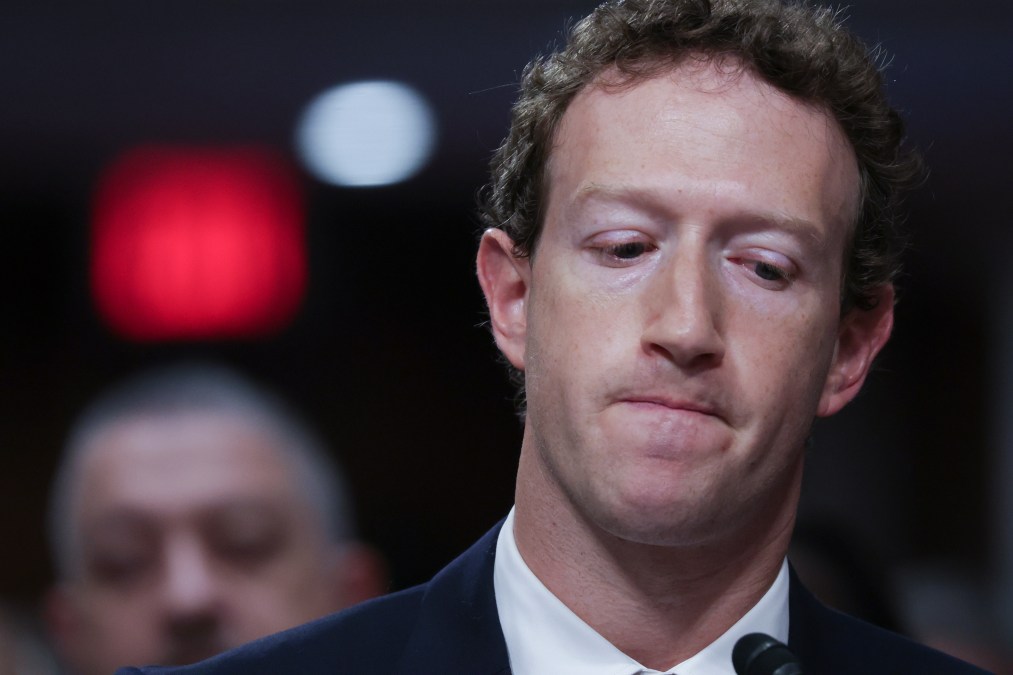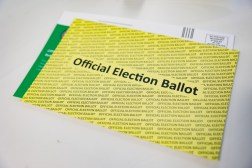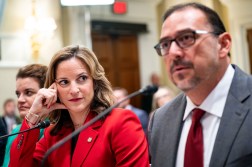Senator urges Meta CEO to maintain election research partnerships

A Democratic Senator is pressing Meta to continue partnering with independent researchers to study the impact of their platforms on the 2024 elections.
In a letter sent Tuesday to Meta CEO Mark Zuckerberg, Sen. Ed Markey, D-Mass., praised the company’s U.S. 2020 Facebook and Instagram Election Study, which opened up Meta’s platform and algorithm to study by outside academics and researchers.
Markey praised collaborations that “produced high-quality and informative studies on Facebook and Instagram’s political impact” on the 2020 elections.. However, he expressed concern that Meta might not repeat the project this cycle, as it has reduced staffing on its trust and safety teams responsible for content moderation and discontinued CrowdTangle, a tool used by researchers to study disinformation and influence operations on its platforms.
“Unfortunately, I recently learned that Meta is not undertaking a similar initiative this election cycle,” Markey wrote, adding “I urge Meta to reconsider any effort to limit transparency into and independent research on its platforms’ impact on our political system.”
Reducing collaboration with researchers during a presidential election year amid widespread doubts about election integrity and both foreign and domestic actors flooding social media with fake and inflammatory content would be “another setback for transparency.”
“With the presidential election just a week away, it may be too late to conduct the exact same type of research as was done under the 2020 initiative, but Meta still has significant data that can shed light on its impact on this election,” Markey continued.
Meta spokesperson Corey Chambliss told CyberScoop that the company’s US 2020 project “is still ongoing and multiple academic papers haven’t been published yet.”
“Meta remains committed to working with the research community in a variety of ways and encourages other social media companies to do the same,” wrote Chambliss.
In a follow up exchange, Chambliss clarified that Meta’s statement does not outline the company’s plans for working with researchers on the 2024 election.
Matthew Gentzkow, a professor of economics at Stanford University who helped co-author a study with Meta employees on the impact that deactivating Facebook and Instagram accounts had on political beliefs during the 2020 election cycle, told CyberScoop that he has not had any conversations with Meta this year about partnering for research on the 2024 election.
“I do think academic-industry partnerships for research are important and valuable, and I strongly encourage all of the tech platforms to continue supporting them,” Gentzkow said in an email.
Natalie (Talia) Stroud, a professor at University of Texas, Austin, who co-led the 17-person team of external researchers who participated in the 2020 Meta partnership, told CyberScoop “I am unaware of any collaborations between Meta and academics to study the 2024 elections.”
“Providing the public, the media, and policymakers a look at what is happening on platforms is critical. I hope that there will be more initiatives in the future,” Stroud said. “These initiatives, however, rely on platforms to dedicate resources to make them happen.”
Critics and disinformation experts have complained that Meta, along with many other social media platforms, has significantly reduced its transparency and election integrity efforts. A report in April from Free Press, a non-profit dedicated to promoting democracy in media coverage, gave Meta an “insufficient” grade for its election integrity efforts in 2024, citing broad cuts to trust and safety staff, not addressing false 2020 election claims, and “opaque and clunky” research tools that hinder researchers’ ability to use the company’s API.
But the most important and constant throughline in Free Press’ critiques is an overall lack of transparency, claiming the company “makes it nearly impossible to understand how it deals with an array of problematic content, whether through labeling and other friction, downranking or removal, and beyond.”
For researchers attempting to gain clarity on this issue, sifting through Meta’s responses “is like trying to find one’s way through a forest of ever-changing policy updates, contradictory community standards, newsroom announcements, blog posts, Terms of Service, business centers, advertising centers, help or customer-support centers, and more,” wrote researchers Nora Benavidez and Jessica González.
You can read Markey’s full letter below.






